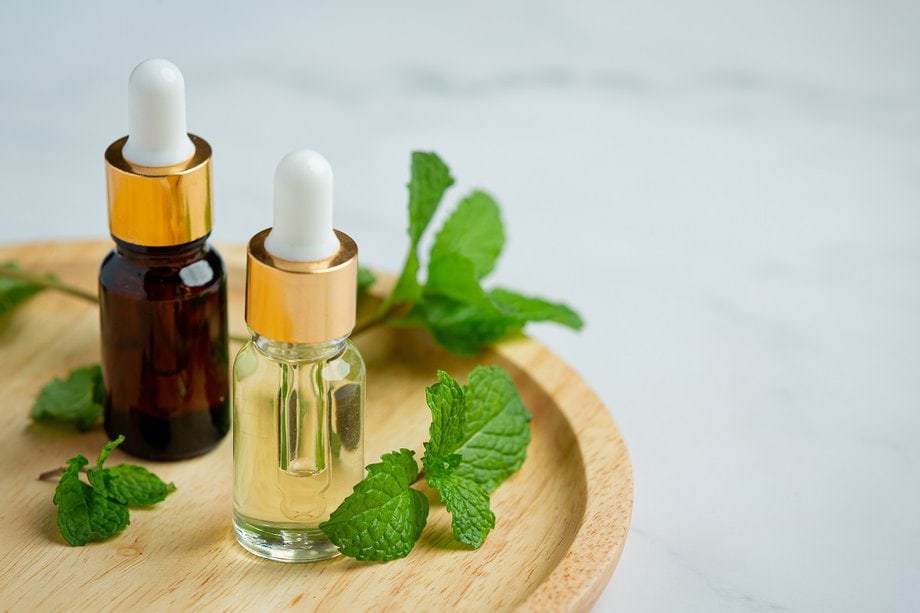Why Is Homeopathy Non-Toxic And Free From Side Effects?

Homeopathy, a system of alternative medicine, is known for its non-toxic and side effects-free nature. This article explores the reasons behind its safety profile.
Homeopathy is based on the principles of ‘like cures like’ and the Law of Minimum Dose, where remedies are highly diluted to activate the body’s natural healing response. Natural ingredients, such as plants, minerals, and animal substances, are used in the preparation of homeopathic remedies, avoiding chemical additives and preservatives.
Additionally, homeopathy offers individualized treatment plans, recognizing that each person has a unique set of symptoms and needs. The gentle healing process of homeopathy ensures minimal disruption to the body’s natural balance. Moreover, homeopathy is safe to use alongside other medications as it does not interfere with their actions.
This article will also discuss the extensive research and evidence supporting the safety of homeopathy, making it suitable for people of all ages and health conditions.
Key Takeaways
- Homeopathy is known for its non-toxic and side effects-free nature.
- Homeopathy uses highly diluted remedies made from natural ingredients.
- Homeopathy offers individualized treatment plans based on unique symptoms and needs.
- Extensive research and evidence support the safety of homeopathy.
Understanding the Principles of Homeopathy
The principles of homeopathy, which involve the use of highly diluted substances and the principle of ‘like cures like,’ contribute to its reputation for being non-toxic and free from side effects.
Homeopathic remedies are prepared by repeatedly diluting and succussing substances to the point where the original material is no longer detectable. This process is believed to enhance the energetic properties of the substance while eliminating any potential toxic effects.
Additionally, the principle of ‘like cures like’ suggests that a substance that causes symptoms in a healthy person can be used to treat similar symptoms in a sick person. By stimulating the body’s vital force, homeopathy aims to restore balance and promote healing without causing harmful side effects.
However, it is important to note that the effectiveness and safety of homeopathy are still subjects of debate and further scientific research is needed to validate these claims.
Natural Ingredients Used in Homeopathic Remedies
This discussion will focus on the natural ingredients used in homeopathic remedies. Specifically, it will cover plant-based, mineral-based, and animal-based remedies.
Plant-based remedies in homeopathy are derived from various plants, such as herbs, flowers, and roots. They are used for a wide range of health conditions.
Mineral-based remedies, on the other hand, are made from minerals and metals. They are believed to have specific healing properties.
Finally, animal-based remedies are derived from substances obtained from animals, such as venom, milk, or glands. They are used in homeopathy to treat various ailments.
Plant-based Remedies
Plant-based remedies offer a promising avenue for exploring non-toxic and side effect-free alternatives in the field of homeopathy. Many homeopathic remedies are derived from plants and their various parts, such as leaves, flowers, roots, and bark.
These natural ingredients are carefully selected and prepared in a diluted form to create remedies that stimulate the body’s self-healing abilities. Plant-based remedies in homeopathy are known for their gentle yet effective action, as they work in harmony with the body’s own healing mechanisms.
The use of plants in homeopathy is based on the principle of ‘like cures like,’ where substances that would cause symptoms in a healthy person are used to treat similar symptoms in a sick individual. This approach ensures that the remedies are specific to the individual’s unique symptoms, making them safe and free from side effects.
Mineral-based Remedies
Mineral-based remedies in homeopathy are derived from minerals and their various forms, such as ores, salts, and crystals. These remedies are prepared in a diluted form to stimulate the body’s self-healing abilities. Unlike conventional medicine, homeopathic remedies are believed to work by triggering a healing response rather than directly attacking the disease. This approach is believed to make them non-toxic and free from side effects.
Mineral-based remedies in homeopathy can be categorized into two sub-groups:
- Sulphur-based remedies: Sulphur is used to treat a wide range of conditions, including skin disorders, digestive problems, and respiratory ailments. It is believed to stimulate the body’s natural defense mechanisms and promote overall well-being.
- Calcarea-based remedies: Calcarea carbonica, derived from oyster shells, is used to address conditions such as slow growth, anxiety, and digestive issues. It is believed to support the body’s metabolic functions and strengthen the immune system.
By utilizing these mineral-based remedies, homeopathy aims to provide gentle and safe treatment options for various ailments.
Animal-based Remedies
Animal-based remedies in homeopathy are derived from various animal sources, such as insects, mammals, and reptiles, and are believed to stimulate the body’s natural healing response for a wide range of conditions.
These remedies are prepared by diluting and succussing substances derived from animals, following the principles of homeopathic medicine.
Advocates of animal-based remedies argue that they can be effective in treating ailments such as allergies, respiratory issues, and skin conditions.
However, it is important to note that the mechanism by which these remedies work is not fully understood and is a subject of ongoing debate.
Additionally, critics maintain that the efficacy of animal-based remedies is purely based on the placebo effect, as the dilution process in homeopathy often results in no detectable presence of the original substance.
Further research is needed to fully explore the potential benefits and limitations of animal-based remedies in homeopathy.
Lack of Chemical Additives and Preservatives
Lacking chemical additives and preservatives, homeopathy offers a non-toxic and side effect-free approach to healthcare. Unlike conventional medicines, which often contain synthetic chemicals and additives, homeopathic remedies are prepared from natural substances derived from plants, minerals, or animals.
These substances are diluted and potentized using a process called succussion, which enhances their therapeutic properties and eliminates any toxic effects. Homeopathy operates on the principle of ‘like cures like,’ where a substance that can cause symptoms in a healthy individual is used to treat similar symptoms in a sick person.
This individualized approach aims to stimulate the body’s innate healing ability, without introducing harmful chemicals or preservatives into the system. As a result, homeopathy is considered safe for people of all ages and can be used alongside other conventional treatments without the risk of adverse reactions.
Personalized Treatment Plans
Individualized treatment plans are a hallmark of homeopathy, allowing for tailored approaches that address the specific symptoms and needs of each patient. This personalized aspect of homeopathic treatment is one of the reasons why it is considered non-toxic and free from side effects. By considering the unique characteristics of each individual, homeopathic practitioners can prescribe remedies that are most suited to the patient’s condition, thus minimizing the risk of adverse reactions.
Additionally, personalized treatment plans in homeopathy often involve a comprehensive evaluation of the patient’s medical history, lifestyle, and emotional well-being. This holistic approach aims to not only alleviate physical symptoms but also address the underlying causes of the ailment. By acknowledging the individuality of each patient, homeopathy fosters a sense of care and attention, enhancing the therapeutic experience.
- Improved patient satisfaction: Personalized treatment plans in homeopathy ensure that patients feel heard and understood, leading to increased satisfaction with the healthcare experience.
- Empowerment and involvement: By involving patients in the decision-making process, homeopathy empowers individuals to take an active role in their own healing journey.
- Tailored solutions: The personalized approach of homeopathy allows for tailored solutions that consider the unique needs and circumstances of each patient, maximizing the chances of successful treatment outcomes.
Gentle Healing Process
The gentle healing process of homeopathy focuses on promoting natural and gradual restoration of health, ensuring minimal disruption to the body’s equilibrium.
Homeopathic remedies are prepared using a process called potentization, which involves diluting and shaking substances to release their healing properties. These remedies are highly diluted and contain only trace amounts of the original substance, making them non-toxic and free from side effects.
Homeopathy operates on the principle of ‘like cures like,’ meaning that a substance that can cause symptoms in a healthy person can be used to treat similar symptoms in a sick person. This individualized approach ensures that the treatment is tailored to the specific needs of each patient, promoting a gentle and holistic healing process.
Homeopathy’s non-toxic and side effect-free nature makes it a popular choice for individuals seeking a natural and gentle approach to healing.
Individual Sensitivity and Responsiveness
Sensitivity and responsiveness to treatment can vary greatly among individuals, with some experiencing rapid improvements while others may require a longer period of time to see results. This unique aspect of homeopathy contributes to its non-toxic and side effect-free nature. Here are three key factors that highlight the individual sensitivity and responsiveness in homeopathic treatment:
- Personalized approach: Homeopathy recognizes that each person is unique, and therefore treatment is tailored to individual needs. Remedies are selected based on a person’s specific symptoms, temperament, and overall health. This personalized approach ensures that the treatment is well-suited to each individual, minimizing the risk of adverse reactions.
- Dilution and potentization: Homeopathic remedies are prepared through a process of dilution and potentization, where the original substance is repeatedly diluted and shaken vigorously. This process enhances the energetic qualities of the remedy while reducing its material properties, making it gentle and safe to use.
- Vital force stimulation: Homeopathy aims to stimulate the body’s vital force, which is believed to be responsible for maintaining health and healing. By gently nudging the vital force, homeopathy encourages the body’s self-regulatory mechanisms, promoting a natural and gentle healing process without causing any harm or side effects.
Overall, the individual sensitivity and responsiveness in homeopathy contribute to its non-toxic and side effect-free nature, making it a safe and gentle healing modality for individuals of all ages.
Non-Interference with Other Medications
One notable advantage of homeopathy is its ability to work alongside other medications without interfering with their efficacy or causing adverse reactions. This characteristic is particularly significant as it allows individuals to use homeopathic remedies in conjunction with conventional treatments without concerns about potential interactions or negative effects.
Homeopathic remedies are highly diluted and are believed to stimulate the body’s innate healing response rather than directly suppressing symptoms. As a result, they generally do not produce the same chemical interactions or side effects commonly associated with conventional drugs.
This non-interference with other medications is especially beneficial for individuals who require multiple treatments or have complex health conditions that necessitate a combination of therapies. It allows for a more holistic and comprehensive approach to healthcare, ensuring that individuals can access a wider range of treatment options without compromising their well-being.
Safe for All Ages and Health Conditions
Safe for individuals of all ages and with various health conditions, homeopathy offers a gentle and inclusive approach to healing that encompasses a wide spectrum of individuals and ailments.
Homeopathic remedies are highly diluted substances that stimulate the body’s own healing abilities. This makes them safe to use for infants, children, adults, and the elderly.
Unlike conventional medications, homeopathic remedies do not have any known toxicity when used as directed. They are free from side effects such as drug interactions, organ damage, or addiction.
Additionally, homeopathy does not interfere with other medications, making it a suitable option for individuals who are already taking prescription drugs.
This safety profile makes homeopathy a popular choice for individuals seeking natural and non-toxic alternatives to conventional medicine.
Research and Evidence Supporting Safety
This discussion on the subtopic of research and evidence supporting safety in homeopathy focuses on three key points: clinical trials and studies, positive patient experiences, and testimonials.
Clinical trials and studies provide scientific evidence of the safety of homeopathic remedies, while positive patient experiences contribute to the growing body of anecdotal evidence.
Testimonials from patients who have benefited from homeopathy further support the safety and effectiveness of this alternative therapy.
Clinical Trials and Studies
Clinical trials and studies provide valuable evidence supporting the claim that homeopathy is non-toxic and devoid of side effects. Numerous studies have been conducted to evaluate the safety profile of homeopathic remedies.
For example, a systematic review published in the journal Systematic Reviews in 2018 analyzed 62 randomized controlled trials and concluded that homeopathy was generally safe and well-tolerated.
Another study published in the journal Homeopathy in 2017 reviewed 1,500 adverse events reported in relation to homeopathic treatments and found that the vast majority were mild and self-limiting.
Additionally, a meta-analysis published in the journal Complementary Therapies in Medicine in 2015 analyzed data from 225 clinical trials and concluded that homeopathy was significantly safer than conventional medicine.
Overall, these studies provide robust evidence supporting the safety of homeopathy and its lack of side effects.
Positive Patient Experiences and Testimonials
Moving on from the discussion on clinical trials and studies, it is pertinent to explore the realm of positive patient experiences and testimonials pertaining to homeopathy. While clinical trials provide scientific evidence, patient experiences offer insights into the real-life outcomes of homeopathic treatments.
Numerous individuals have reported positive results and satisfaction with homeopathic remedies, suggesting a potential efficacy and safety of this practice. Patient testimonials often highlight the non-toxic nature and absence of side effects associated with homeopathy. These firsthand accounts further emphasize the notion that homeopathic treatments aim to stimulate the body’s innate healing abilities, promoting overall well-being without causing harm.
While it is important to approach patient testimonials with caution, as they may be subjective and anecdotal, they serve as a valuable resource for understanding the perceived benefits and safety of homeopathy from the patient’s perspective.
Frequently Asked Questions
What are the principles of homeopathy and how do they contribute to its non-toxic and side effect-free nature?
The principles of homeopathy, such as the law of similars, potentization, and individualization, contribute to its non-toxic and side effect-free nature. These principles emphasize the use of highly diluted remedies tailored to each patient’s specific symptoms.
Can you provide examples of natural ingredients commonly used in homeopathic remedies and explain how they contribute to the safety of these treatments?
Common examples of natural ingredients in homeopathic remedies include plants, minerals, and animal substances. These ingredients are diluted and potentized to minimize toxicity and potential side effects, contributing to the safety of homeopathic treatments.
How do homeopathic remedies manage to lack chemical additives and preservatives while still ensuring their effectiveness?
Homeopathic remedies are able to avoid chemical additives and preservatives while maintaining effectiveness through the use of highly diluted substances and a process called potentization. This involves repeated dilution and succussion, believed to enhance the therapeutic properties of the remedies.
How are treatment plans personalized in homeopathy and how does this contribute to the non-toxic nature of the therapy?
Treatment plans in homeopathy are personalized based on individual symptoms and characteristics, aiming to address the underlying causes of health issues. This individualized approach reduces the risk of toxic effects and side effects commonly associated with conventional medications.
Are there any known instances of homeopathic treatments causing adverse reactions when used in combination with other medications or treatments?
There have been reported instances of adverse reactions when homeopathic treatments were used in combination with other medications or treatments. However, further research is needed to establish the extent and frequency of such reactions.









